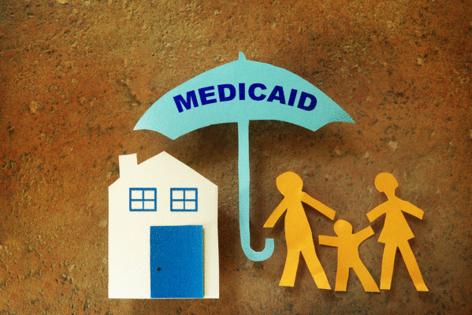Millions were booted from Medicaid. The insurers that run it gained Medicaid revenue anyway
Published in Health & Fitness
Private Medicaid health plans lost millions of members in the past year as pandemic protections that prohibited states from dropping anyone from the government program expired.
But despite Medicaid’s unwinding, as it’s known, at least two of the five largest publicly traded companies selling plans have continued to increase revenue from the program, according to their latest earnings reports.
“It’s a very interesting paradox,” said Andy Schneider, a research professor at Georgetown University’s McCourt School of Public Policy, of plans’ Medicaid revenue increasing despite enrollment drops.
Medicaid, the state-federal health program for low-income and disabled people, is administered by states. But most people enrolled in the program get their health care through insurers contracted by states, including UnitedHealthcare, Centene, and Molina.
The companies persuaded states to pay them more money per Medicaid enrollee under the assumption that younger and healthier people were dropping out — presumably for Obamacare coverage or employer-based health insurance, or because they didn’t see the need to get coverage — leaving behind an older and sicker population to cover, their executives have told investors.
Several of the companies reported that states have made midyear and retrospective changes in their payments to plans to account for the worsening health status of members.
In an earnings call with analysts on April 25, Molina Healthcare CEO Joe Zubretsky said 19 states increased their payment rates this year to adjust for sicker Medicaid enrollees. “States have been very responsive,” Zubretsky said. “We couldn’t be more pleased with the way our state customers have responded to having rates be commensurate with normal cost trends and trends that have been influenced by the acuity shift.”
Health plans have faced much uncertainty during the Medicaid unwinding, as states began reassessing enrollees’ eligibility and dropping those deemed no longer qualified or who lost coverage because of procedural errors. Before the unwinding, plans said they expected the overall risk profile of their members to go up because those remaining in the program would be sicker.
UnitedHealthcare, Centene, and Molina had Medicaid revenue increases ranging from 3% to 18% in 2023, according to KFF. The two other large Medicaid insurers, Elevance and CVS Health, do not break out Medicaid-specific revenue.
The Medicaid enrollment of the five companies collectively declined by about 10% from the end of March 2023 through the end of December 2023, from 44.2 million people to 39.9 million, KFF data shows.
...continued
©2024 KFF Health News. Distributed by Tribune Content Agency, LLC.







Comments